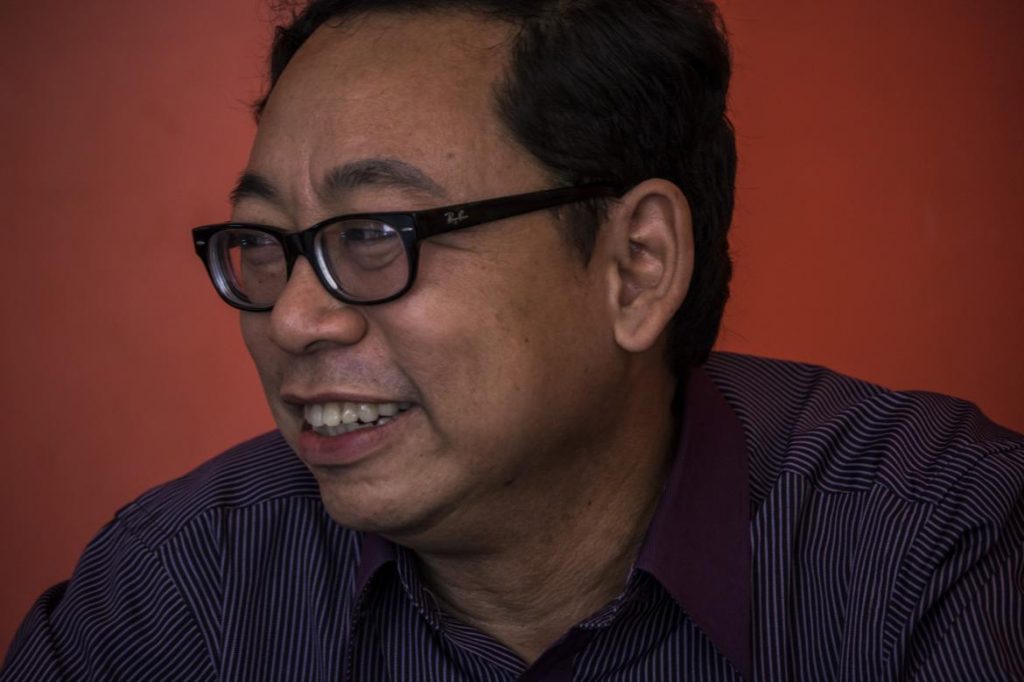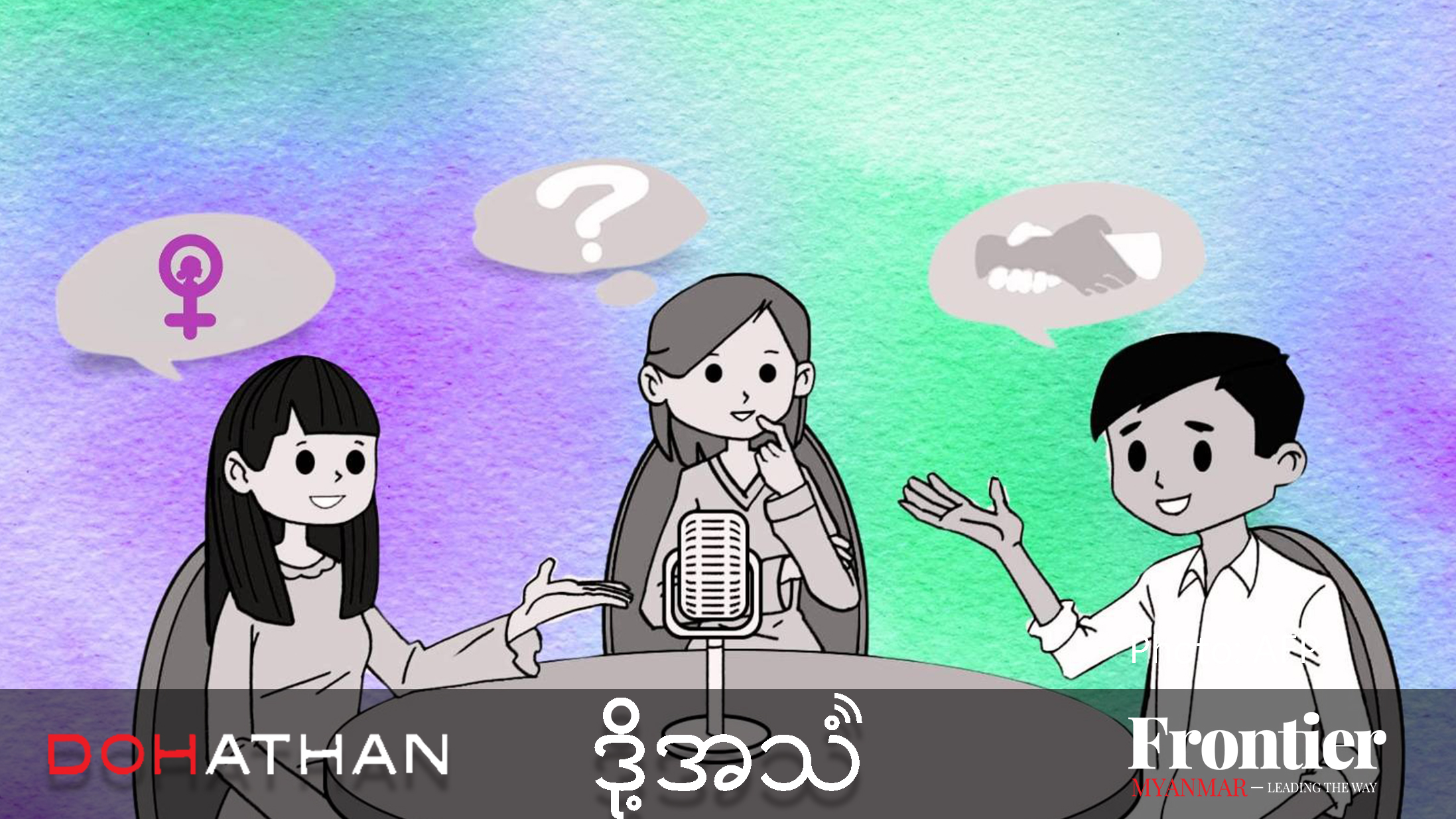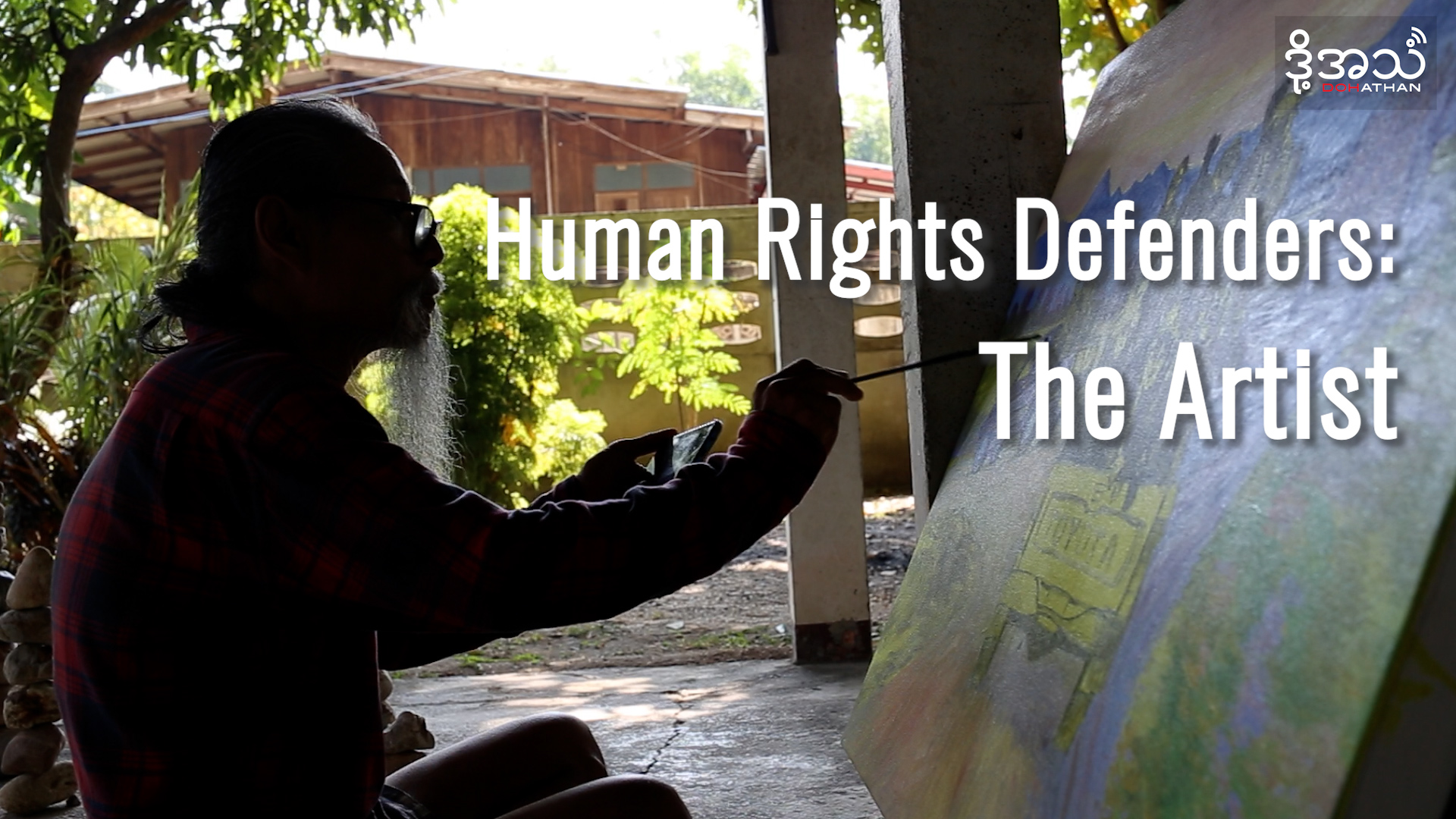U Aung Myo Min is one of Myanmar’s best-known LGBT activists. He fled to Thailand after the 1988 anti-government uprising, joining the All Burma Students Democratic Front movement, before studying human rights at Columbia University in New York.
In 2012, he returned to Myanmar for the first time in 23 years, where he devoted his attention to the issues facing the country’s LGBT people. His story – which includes the torture and death of his partner during the anti-government struggle – is documented in the award-winning movie “This Kind of Love”.
What is some of the work Equality Myanmar is currently doing in Myanmar?
We have three strategies. First is the empowerment of LGBT people, so we are working on community-based activities and social events, for example hosting the IDAHO (International Day Against Homophobia) on May 17.
The second part is through the media. We educate non-LGBT people about how to understand what LGBT is, and about discrimination of people based on sexual orientation.
And thirdly, we are trying to introduce legal reforms, especially getting rid of Article 377, which targets LGBT people. Among ASEAN, only Burma, Malaysia, Singapore and Brunei have this kind of law.
What is the legal situation for LGBT people in Myanmar today?
Support more independent journalism like this. Sign up to be a Frontier member.
Article 377 of the Penal Code is the major challenge for LGBT people. It is not exactly a sodomy law, but is about “unnatural sex”. This could be anything, even between different sexes, as people have different creative ways of sex. So I always ask: “Can you give a definition of what is unnatural sex?”
Some countries have repealed this law, but many Southeast Asian countries have kept it. Fortunately, the law is not strictly enforced, but police use it a lot to make money out of gay men, especially at night time. There are many instances of this, and many go unreported.
How sympathetic has the government been to calls for the abolition of Article 377?
With the previous government, we worked hard and had some sympathetic MPs in parliament. They were sympathetic but they also need to be empowered to speak about the issue. The social attitude towards LGBT people is still very sensitive, so even though an MP is sympathetic, they don’t want to take a leading role in talking about it. We need to get public support to give them a mandate for that.
Are you confident that a government led by the National League for Democracy will drive this issue forward?
We don’t know yet what is the official position of the NLD on LGBT people. We haven’t asked yet, because if we do, we are putting forward a very sensitive issue that other groups can use to attack — for example with the religious issue, or the Rohingya issue.
But now they are in power, I think this is the time for us to raise the topic and get their policies on LGBT issues. But I would say they are very keen on human rights issues, so this is linked. We are also human beings in society. No one should be discriminated against because of their sexuality, so this is our key message: Treat us as human beings, as part of society, not as a problem in society.
Has the stigma towards the LGBT community eased since Myanmar’s reform process began?
What is important is the impact of social media, which brings both positive and negative change.
We have developed a network for LGBT people to share feelings, and for chatting and for dating, but there is also the negative side. Many people who are not happy with homosexuality make really disgusting comments and hate speech.
But for us it’s about using the social media for good as this sort of free information can inspire many young people [to come out].
What are some of the key legal reforms you would like to see regarding LGBT issues in Myanmar?
I think it is too early to be looking at legal marriage at the moment, but I think we need to look at an anti-discrimination law that says people cannot be discriminated against based on sexual orientation or gender identity.
Another one is the Constitution, because the Constitution says that every citizen of the country should be treated equal regardless of religion, ethnicity, and so on, but there is nothing about sexual orientation and disabilities.
We have lot of support, particularly among women’s groups. In every movement around the world, women’s groups are the most supportive of the LGBT people, because we are in the same situation of discrimination.
We also have support from other minority groups – religious groups and other minorities. So we have more solidarity and have more resources and can strengthen our position to change the law.
Have you seen a shift in attitudes from foreign donors in recent years?
Yes, we have seen it both financially and democratically. When we hosted the IDAHO Day on May 17, we invited the ambassadors from the US and the EU to show support, which is a really good message to our government, to say this is no longer a national issue, but an international movement.
And last year, it was great to see the Rainbow flag flown at the US Embassy on IDAHO Day. So the movement is certainly growing. Last year, there were 16 IDAHO Day events across the country.
At a regional level, who do you see championing LGBT rights?
I wish Burma was the champion of that, but it hasn’t happened. I would say that Vietnam is the leader. It’s quite surprising from the government, for example the introduction of the marriage law.
In Thailand, I would say it is socially accepted, but the government’s response has been very, very slow. Thailand is still debating the marriage law, and a bad side to this is the coup, as they don’t want to see this law passed by the military.
If there is a member of the LGBT community who has not yet come out and reading this article, is there a message you would like to send to them?
Well I don’t want to blame people if they are coming out or not, but I want to say, don’t feel your homosexuality is a kind of sin or mistake. It is just the way you are.
These people will have support because our movement is growing, even from non-LGBT people. So use that kind of opportunity to empower yourself and be proud of yourself.
But we don’t need to put pressure on people who have still not come out. So if you are proud of your identity, of your sexual orientation, that is fine, but don’t be ashamed and don’t hide who you are.







